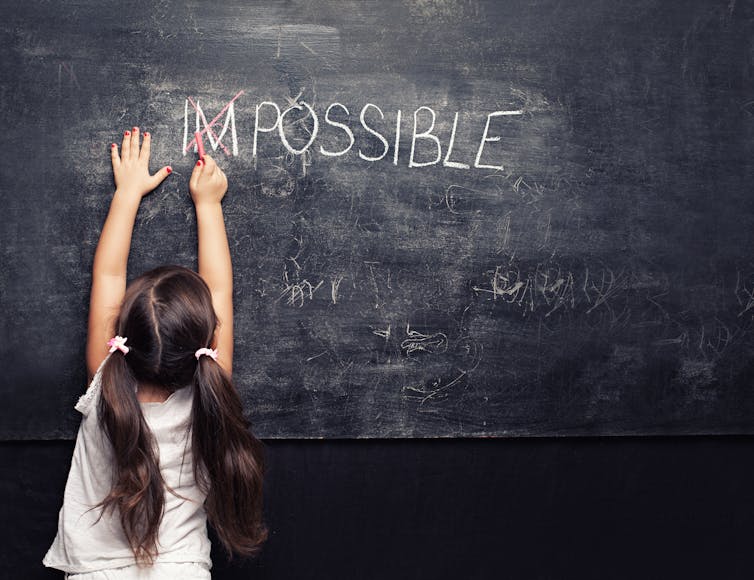
Philosophy was always dangerous, as the life and death of Socrates taught us. He was, need I remind you, executed not by an authoritarian regime but by a caring democracy. Times have changed however, and today’s contemporary philosophers need not fear the hemlock. They are are roundly viewed as safe.
Those who champion teaching philosophy for kids claim it is neither dangerous nor subversive. It has become increasingly popular, especially as a way of enthusing young children. We are seeing the rise of an education industry. There is the whole Philosophy For Children (P4C) movement which includes the Society for the Advancement of Philosophical Enquiry and Reflection in Education (SAPERE) and other initiatives like Thinking Scripts and The Philosophy Man. There are even academic Centres for Philosophy for Children in the United States, and lots of training courses and qualifications.
But I want to argue that because it is safe and popular we should be suspicious of it. Philosophy may no longer be dangerous, but P4C itself may well be. In the book I co-authored, The Dangerous Rise of Therapeutic Education, some controversy resulted from our claim that these philosophy classes could be hijacked and become nothing more than “circle time” with children being encouraged to express feelings and do some respectful listening in an uncritical way.

Although we explicitly did not ask whether kids can do Kant, let me boldly say no, they can’t. This will not come as a surprise to the proponents of P4C, who explicitly state that getting children to read Kant or sections of Kant and doing comprehension work is not what they do. They say that such an approach would put children off doing philosophy. In P4C pupils are not struggling to understand philosophical texts as students do in parts of Philosophy A level.
So what does P4C do? The claim is that it can “make kids think” and they are, we are told, natural and uninhibited philosophers. Dr Sara Goering, of the University of Washington’s Center for Philosophy for Children, says it is a great subject because above all else children love it.
That is never a reason for teaching anything, and although children may love it I want to give three reasons why it is not good for them.
Skills without content
My first criticism is that it is therapy. It is said to help children grow in confidence and empower them. It also covers what Sara Goering scarily calls “behavioural skills” as part of the training pupils get. Often it is a touchy-feely, relativistic shambles.
My second criticism is that it is patronising. It flatters children by thinking they can have powerful understanding without any real studying. They just need to express themselves and argue. They are even held to have thoughts before words.
All this veneration of the innocent, but truth-seeing, uncomplicated child, is a myth for adults who have nothing to offer children but skills without any content. That makes life easy for everyone. But children who think arguing with no study is meaningful, are not being educated. They are being flattered.
Worse still, they may come to believe they need to know nothing. This is not Socratic awareness that came after a lifetime of dialogue. It is a dire state of ignorance. You see it in some school debating competitions where students can’t really argue because they don’t know enough.
My third criticism is that it is a pretence that children often have little of interest to say about philosophical issues. Typically, their insights come down to the banalities, such as the ethical understanding that some things are not fair.
Training in cynicism
There is no doubt that children like objecting to things. “Questioning authority and being subversive definitely appeals to the teenage mindset,” says John Taylor, director of critical studies at Rugby School. But they cannot challenge and question in a Socratic way.
In the Athenian cities, many people felt they knew the absolute truth and Socrates – the sting ray – could challenge them and leave them in a state of aporia, or philosophical puzzle, so they would have to think for themselves.
In contemporary Britain, where there is a crisis of values and no one is sure what they are or what they believe, a cynical veneration of criticism dominates all thinking. Everyone is a Socrates now and P4C offers training in cynicism.
Can philosophy be made dangerous again? Too much dull thinking now gets classified as dangerous when most of it is conventional. When my children were at school I used to try to get them to use some philosophical arguments in their classes, for example, against the existence of god or for utilitarianism, but they were very reluctant.
“They’ll send the social workers round if we said that!” they warned, very conscious of the consequences of challenging teachers and conventional thought. Now it’s all puzzles, play and fun with an illusion of challenge.
Critical, but low on content
What has changed is the importance of critical thinking skills. Becoming critical means getting children to give up the wrong ideas they have, but not to be critical of the fact their schools are like prisons, they can’t eat chips and have had subject-based education replaced by government propaganda.
Recently, I gave a lecture to new students about what to expect from university, and one 18-year-old girl said that what she hated most at school and now at university were lecturers who banged on about critical thinking but didn’t tell students anything. She was right. What schools need are assertive teachers with strong ideas who could then be challenged by children. Rather than lessons with the very nice P4C people who allow children to develop their own philosophies.
Children are being taught they don’t need to know anything, but also to have no values. P4C reflects a world where a wishy-washy conformism is the norm and having and expressing strong views is impolite and leads to dangerous extremism.
P4C has become increasingly popular as subject-based education has declined. A lot of the issues that children raise in P4C about god, the nature of the world and feelings should be taught in other subject such as religious studies, science, or literature, joined together knowledge.
Philosophy could be part of the school curriculum. It’s great works could be taught in history or literature. In drama, pupils could learn and perform Plato’s eristic dialogues. This follows the direction of thought of some of the more subtle defenders of P4C. One example is Michael Hand who argues:
It must be a good thing to enable young children to be clear about the way they speak and think. It is of benefit to the children and to the public at large, because a lot of public debate is befuddled by woolly thinking and imprecise use of language.
Hand’s is an argument for English lessons, not philosophy.
The reading of philosophy in this way could still be dangerous. For example, take a study of Emile, Rousseau’s treatise on education, in history, literature or French. It could easily open up children’s minds not to how they are the centre of the universe, but to how their teachers might be manipulating the world they experience to make them have the right thoughts and feelings. There is a lesson in Rousseau for practitioners of philosophy for children.
